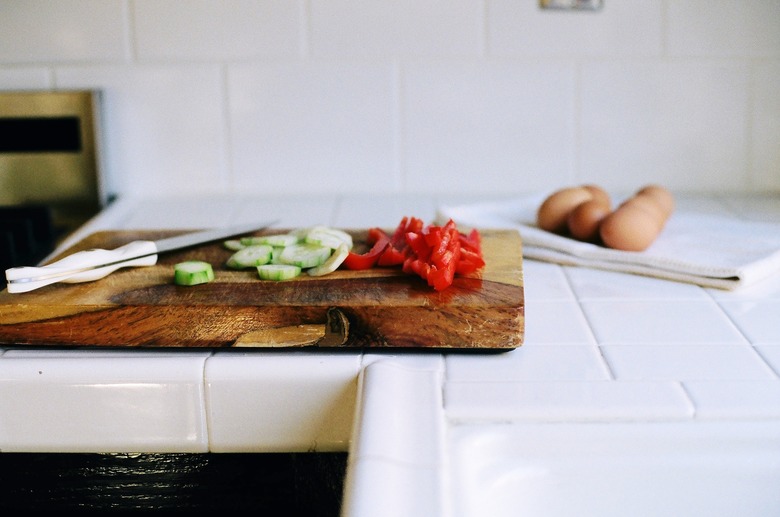How To Clean Tile And Grouted Countertops
Tile countertops are an excellent choice for the kitchen and the bathroom. They are durable, mostly water-resistant and relatively easy to clean. With proper care and maintenance, tile and grouted countertops will last a long time. However, it's important to be sure that you're cleaning kitchen counter tile grout properly to avoid mildew, mold and other bacterial growth.
How to Clean Ceramic Tile Countertops
Allowing dirt, moisture and germs of any kind to collect on tile countertops can make the surface very unsanitary. By using the appropriate cleaning solutions and cleaning methods to keep tile and grout clean, you can avoid anything compromising the cleanliness of your tile countertop.
First, make sure that after every use, you wipe down the surface of the tile with either a commercial tile cleaner or one made out of white vinegar, baking soda, liquid soap and water. Spray the solution onto the surface of the tile and wipe with a sponge or a paper towel. This will prevent significant buildup from accumulating on the countertop and will get rid of any existent bacteria.
Take special attention to see that you are also cleaning the grout when you wipe the surface, without saturating the grout area with cleanser or moisture. Whether your tiles are porcelain, ceramic or natural stone, grout needs special attention. Grout's porous nature can trap moisture, and mildew and mold can easily form in tile grout if the area is kept wet.
Deep Cleaning Tile Countertops
Deep cleaning ceramic tile countertops can be tricky. A strong tile cleaning solution is necessary to sanitize the tile and grout, but a cleanser that is too abrasive can damage the shiny glazed surface of certain kinds of tile. It is best to use a gentle cleanser on the tile surface and a more extreme cleanser on the grout.
Tile resists staining generally speaking, but grout does not. It's small surface area also makes it an ideal place for crumbs and other particles to gather. For this reason, grout is almost always the dirtiest part of the tile. You are going to want to clean it with a cleansing solution that is dedicated to cleaning grout. You can even use a solution prepared with bleach that will help to kill any lingering bacteria.
Cover the surface of the grout with the cleansing solution of your choice, and use a small brush (a toothbrush is ideal) to scrub the solution into the surface of the grout. Take care not to scrub too hard, as it could damage the surface of the adjacent tiles. Wipe the surface of the grout with water and allow it to air dry completely. If the room you are cleaning has minimal ventilation, consider bringing in a fan to ensure that everything dries quickly.
Sealing Grout
Cleaning kitchen counter tile grout is critical to keeping things sanitary in your kitchen and preventing mold and mildew. Although regular cleaning is important, prevention is even better. An excellent idea to prevent staining and mildew is to seal the grout between your tiles.
Once you have fully cleaned the grout, and you are confident that the grout is fully dry, you can carefully apply a commercial grout sealer. The grout sealer will not only help your grout resist dirt particles and staining agents, but it will also adhere the grout to the tiles on your countertop, preventing them from loosening and coming out.
People often wonder if they should seal their tiles, as well. Glazed tiles won't require sealing, but unglazed tiles and natural stone should be sealed to the countertop and grout with a tile sealer designed to keep the tile intact and prevent staining and damage at the same time.
